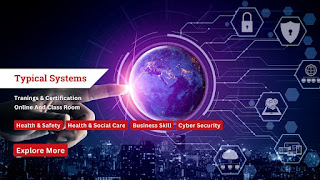Enroll on the best Health and safety Courses guided by Certified Trainers

Level 5 Food Safety Course: Enhancing Food Handling Excellence with Typical Systems The world of food safety is evolving, and ensuring the highest standards in food handling and preparation is of utmost importance. In recent years, there has been a growing demand for advanced training programs that can equip professionals with the knowledge and expertise to maintain the highest level of food safety. Among these courses, the Level 5 Food Safety course offered by Typical Systems stands out as a comprehensive and industry-leading program. In this blog, we will explore the significance of Level 5 Food Safety training and how Typical Systems is setting new benchmarks in food safety education. Understanding Level 5 Food Safety Level 5 Food Safety is the highest level of certification in food safety training. It is designed for individuals who are already experienced in the food industry and hold significant responsibilities in managing food safety practices. Whether you're a head chef, ...
.jpg)
.jpg)